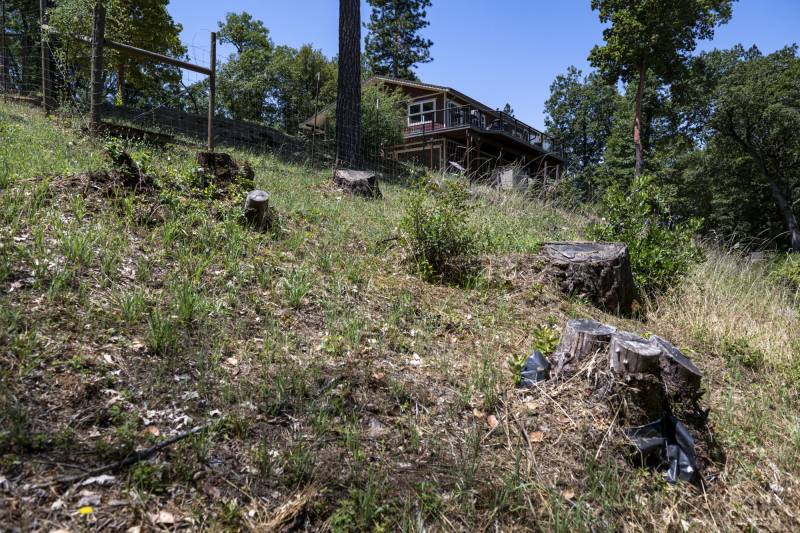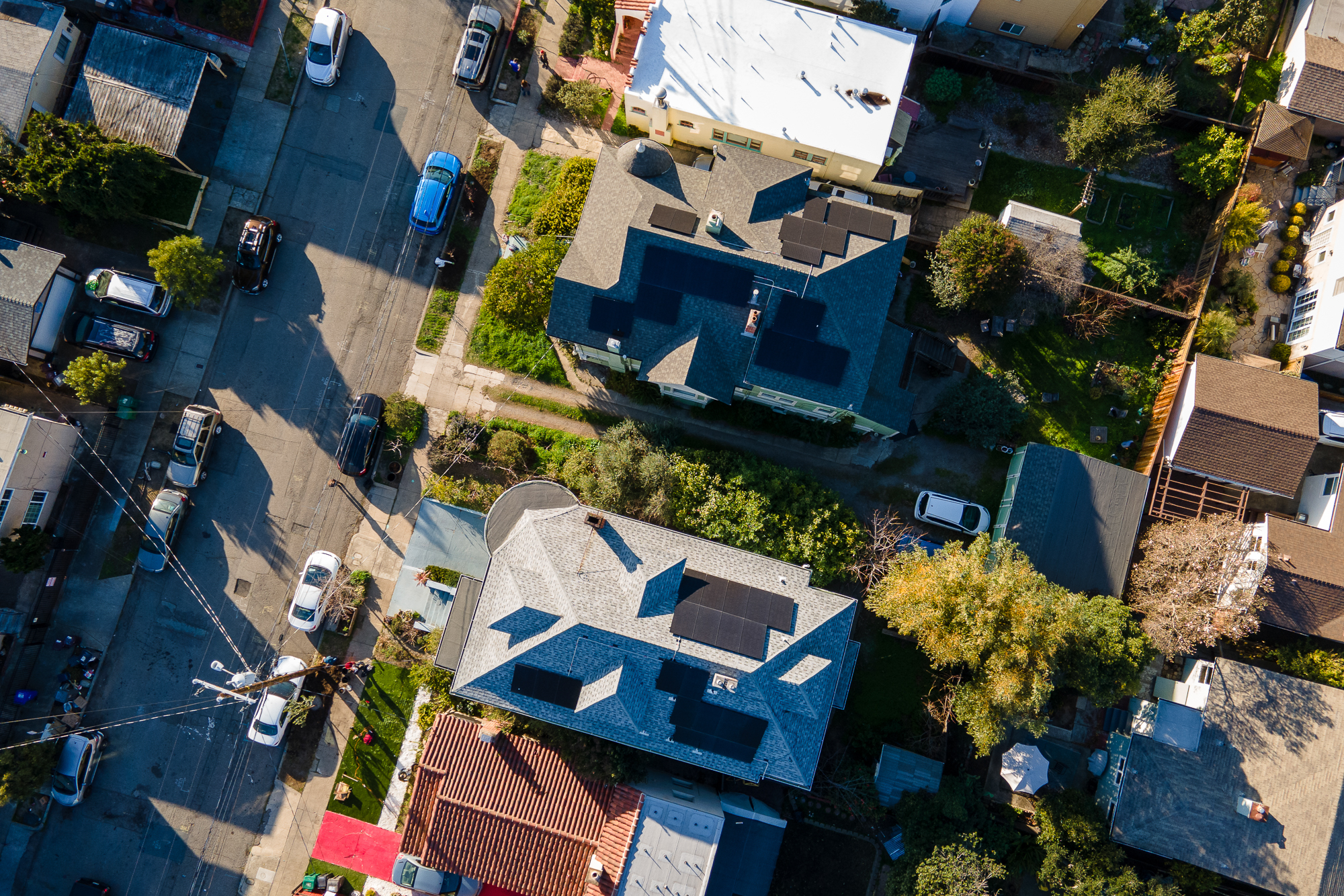Jul 25
Failed to save article
Please try again

Tree stumps fill the front yard of a home on the San Juan Ridge near Nevada City, California, on June 27, 2023, after crews were hired to create defensible space to help protect the home from wildfire. A new survey shows state residents believe climate change poses a personal and financial risk, and they want more action from the government — though cost is a concern. (Beth LaBerge/KQED)
While renewable energy is generally cheaper than oil and gas, investing in the infrastructure to transition from a fossil fuel economy to a renewable energy economy is pricey. That includes the costs like installing high-speed EV chargers and reinforcing the electric grid. How to fund those projects is a conundrum for policymakers.
“Affordability and cost of living are generally the top issues that Californians say the state is facing,” said Lauren Mora, a survey analyst at the Public Policy Institute of California.
 Solar panels fill the roofs of 2 homes in Oakland on Jan. 26, 2025. These houses are a part of EcoBlock, a collaborative project bringing together academics, professionals, government agencies, utilities, private donors, and residents. The initiative aims to help an entire city block reduce emissions through insulation upgrades, electric appliances, and solar panels. (Beth LaBerge/KQED)
Solar panels fill the roofs of 2 homes in Oakland on Jan. 26, 2025. These houses are a part of EcoBlock, a collaborative project bringing together academics, professionals, government agencies, utilities, private donors, and residents. The initiative aims to help an entire city block reduce emissions through insulation upgrades, electric appliances, and solar panels. (Beth LaBerge/KQED)“Californians are already not happy with the costs that they’re paying on energy bills. And when we ask about the possibility of paying more, Californians are just not for it.”
Still, as climate disasters become more frequent and more intense due to the effects of human-caused climate change, many are worried that they’ll have to pay more for home insurance.
Out of roughly 1,700 respondents polled earlier this month, 60% said they were very concerned that home insurance will become more expensive, and almost as many said they will be unable to obtain home insurance due to climate change risks.
“A lot of people are understandably concerned about how this may affect their ability to afford their home,” said Michael Wara, climate and energy expert at Stanford. “And, of course, everyone in California is struggling to afford their home in the first place. So this is like a wild card that they’re being dealt by climate change and wildfire.”
There were clear partisan differences in survey responses. While about a third of Democrats named global warming as the top environmental issue facing the state, 42% of Republicans chose government overregulation. Independents were most likely to choose wildfires.
Despite their concerns about rising costs, 55% of Californians surveyed believe that stricter state environmental regulations are worth it. (Generally, environmental regulations can cause some short-term loss of profit for businesses but pay for themselves with healthier people, averted hospital visits and fewer premature deaths.)
Most surveyed by PPIC, 6 in 10, favor the state government making its own policies, separate from the federal government, on climate change, and a similar majority said they want to see the government do more.
“I thought it was really interesting, there was a general dissatisfaction expressed with the amount of effort that the state and local governments are putting into this problem,” Wara said. “I think the state has been trying to do a lot. Local governments have been trying to do a lot as well. But there’s a recognition that we need to do even more. And so what does that look like?”
That could mean spending more money on local fire departments or the California Department of Forestry and Fire Protection. It could also mean paying more to prepare neighborhoods and cities for fire or sea level rise.
While Californians seem to want more action on climate change and are willing to support it — notably, state voters passed a $10 billion climate bond with almost 60% support last November — they are simultaneously and understandably wary of paying more money for anything. That could include paying higher prices for more sustainable home insurance or extra fees for electrical infrastructure investments.
“Californians have a preference for environmental quality, that’s been true forever,” Wara said. “[But] can they afford to express that preference in their choices? It’s getting harder and harder for them to afford that.”
PPIC published a detailed analysis of the survey on its website.









 English (US) ·
English (US) ·